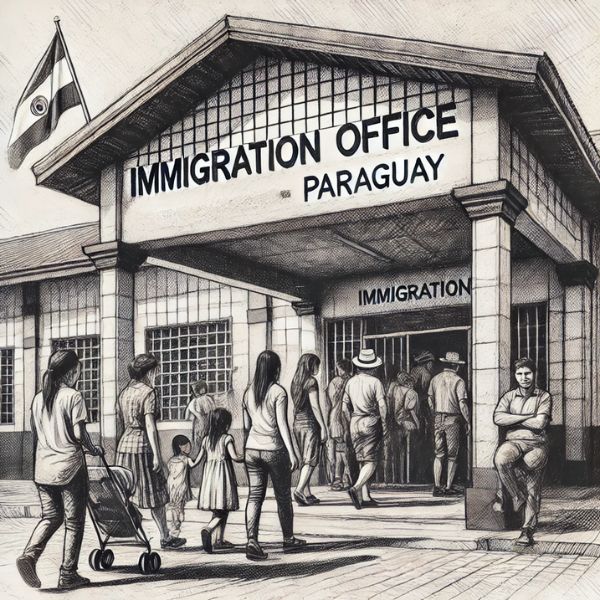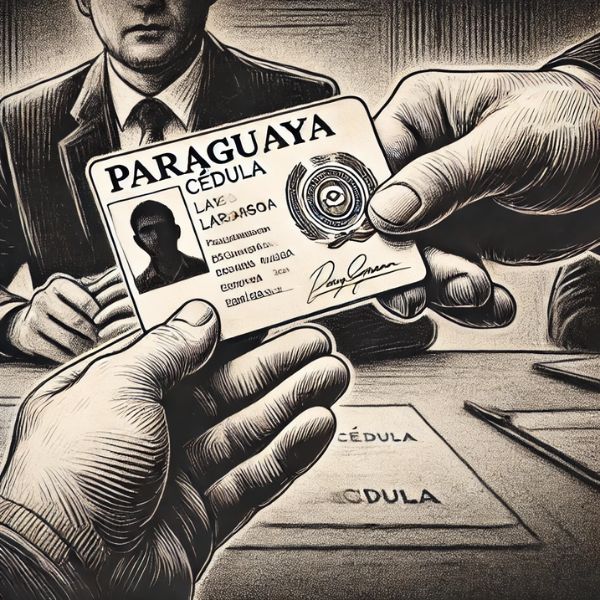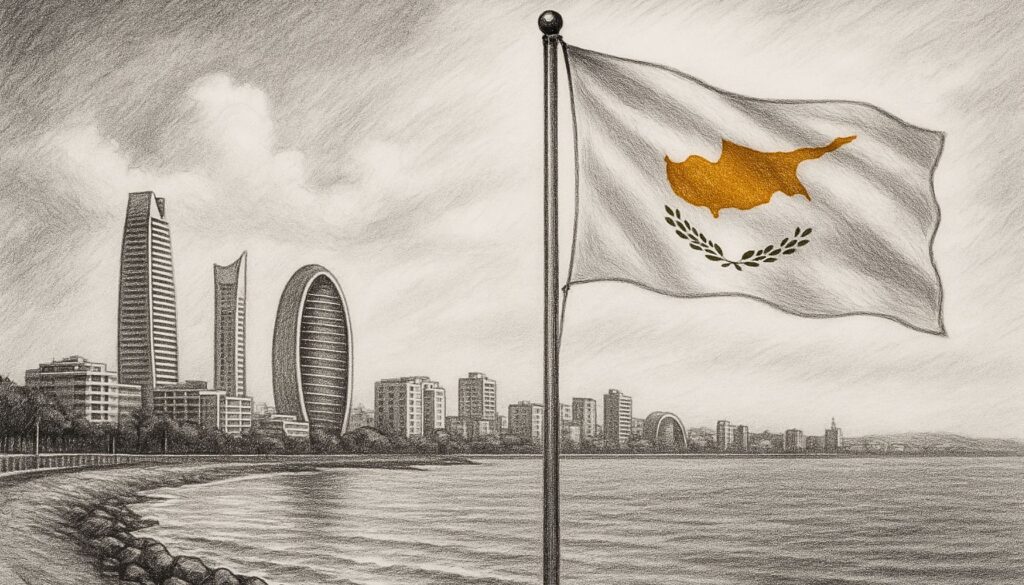In a world where taxes keep rising unchecked, inflation erodes savings, and governments tighten their grip on every cent you earn, many are seeking alternatives outside traditional economies. That’s where Paraguay 0% Taxes comes into play. But is it truly a viable solution or just another fleeting tax trend?
Indice del artículo
Comparison with Europe and the U.S.: The Decline of Traditional Models
While Europe is pushing middle-class earners and entrepreneurs to record-high tax burdens and the U.S. IRS increases scrutiny over investors and expatriates, Paraguay presents a radically different approach:
✅ Territorial taxation → You only pay taxes on income generated within the country.
✅ Financial privacy → Paraguay does not actively participate in the Common Reporting Standard (CRS).
✅ Low regulation → Less bureaucracy for investors and entrepreneurs.
In this article, we’ll analyze how Paraguay has become a compelling tax haven and what steps you need to take to legally benefit from its 0% tax system.
Paraguay as a Tax Residency Option: Is It Really a 0% Tax Haven?
If you’re tired of seeing every euro or dollar you earn being drained by a voracious tax system, Paraguay 0% Taxes might seem like an attractive promise. But what truly sets it apart from other tax-friendly countries? The answer lies in two critical factors:
- A pure territorial taxation system
- A level of banking privacy that many other nations have sacrificed in the name of “financial transparency”
The Benefits of Territorial Taxation: Why Doesn’t Paraguay Want Your Money?
Unlike Western economies, where governments use taxes as a tool for social control, Paraguay operates under a pure territorial tax system. What does this mean for you?
👉 You only pay taxes on income generated inside Paraguay. If your earnings come from abroad—whether through investments, dividends, or digital businesses—your tax rate is legally 0%.
This makes Paraguay a superior alternative to countries like Portugal or Spain, where tax burdens persist even after you change residency. Here, if you structure your tax residency correctly, you can optimize your taxation without conflicts with your home country’s tax authority.
Quick Comparison with Other Tax-Friendly Destinations
| Country | Tax System | Taxes on Foreign Income? | Ease of Obtaining Tax Residency |
|---|---|---|---|
| Paraguay | Territorial | ❌ 0% | ✅ Easy |
| Panama | Territorial | ❌ 0% | ⚠️ Moderate |
| UAE | No personal income tax | ❌ 0% | ✅ Easy |
| Cyprus (Non-Dom) | Worldwide (with exceptions) | ✅ Depends on income | ⚠️ Moderate |
| Spain | Worldwide | ✅ High | ❌ Difficult to detach from |
But don’t be fooled into thinking it’s as easy as just booking a flight to Asunción. To legally claim Paraguayan tax residency and enjoy 0% taxes, there are key steps you need to take. We’ll cover those in detail later.

Banking and Financial Privacy: The Last Refuge in a Controlled World
In an era where banks act as government watchdogs, reporting every financial transaction and limiting access to your own money, Paraguay still maintains a level of privacy that few countries can offer.
- Not fully integrated into the CRS (Common Reporting Standard): Unlike Europe, where banks automatically report your accounts to tax authorities in your home country, Paraguay does not enforce this process as strictly.
- No arbitrary restrictions on international transfers: While banks in the U.S. or the EU freeze accounts over “suspicious activity” without prior notice, in Paraguay, you can still move your money without being treated like a financial criminal.
Comparison of Banking Privacy
| Country | Automatic Account Reporting to Foreign Authorities | Control Over International Transfers |
|---|---|---|
| Paraguay | ❌ Not mandatory in all cases | ✅ Low |
| Switzerland | ✅ Yes (except private accounts) | ⚠️ Medium |
| Spain | ✅ Yes (Tax authorities receive full info) | ❌ High |
| U.S. | ❌ FATCA protects local citizens | ⚠️ Medium |
However, privacy does not mean opacity. While Paraguay has not yet fallen into extreme banking surveillance, it still has clear regulations for those looking to operate legally and securely.
In the next section, we’ll explore how to properly structure your tax residency in Paraguay to avoid costly mistakes.
Types of Residency in Paraguay
Paraguay offers three main residency options, each tailored to different profiles. From a basic option for those looking to settle in the country to fast-track alternatives that allow for quicker tax residency status.
Temporary Residency: Process, Requirements, and Benefits
Temporary residency is the simplest way to start in Paraguay, but it does not automatically grant tax residency. Its biggest advantage is that it requires minimal physical presence, making it attractive for those seeking flexibility.
Main Requirements
- Valid passport.
- Apostilled birth certificate and criminal record.
- Proof of address from the country of origin.
- Application submission to Paraguay’s Migration Directorate.
Process
- Prepare required documents and obtain apostilles.
- Submit the application to the Paraguayan Migration Directorate.
- Processing time: Around 6 to 8 weeks.
- Obtain the Paraguayan ID card (Cédula de Identidad) in a mandatory in-person visit.
Advantages
✅ Only one day per year in Paraguay is required to maintain it.
✅ No need to prove income or make investments.
✅ Option to apply for permanent residency after 2 years.
Limitations
⚠️ Extended absence from the country may cause renewal difficulties.

Permanent Residency: How to Obtain It and Its Benefits
Permanent residency is a more stable option, as it lasts 10 years and allows you to live in Paraguay without constant renewals. It is the best choice for those looking to establish themselves long-term.
Requirements
- Must have been a temporary resident for at least 2 years.
- Demonstrate a connection to Paraguay (economic activity, property ownership, employment, or investment).
- Submit an application to the Migration Office for residency status change.
Key Benefits
✅ No frequent renewals required.
✅ Allows you to stay outside Paraguay for up to 3 years without losing residency.
✅ Facilitates the path to Paraguayan citizenship after 3 years of effective residency.
Things to Consider
⚠️ Not an immediate solution—requires obtaining temporary residency first.
Residency by Investment: Costs, Benefits, and Requirements
For those looking to fast-track the process and secure tax residency, residency by investment is the best option.
Requirements
💰 Minimum investment of $70,000 USD in a Paraguayan business.
📄 Demonstrate that the investment generates real economic activity.
🏢 Official registration of the business and declaration to Paraguayan authorities.
Advantages
✅ Direct access to tax residency and 0% tax if structured correctly.
✅ Option to apply for permanent residency without going through the temporary stage.
✅ Greater legal and financial stability in the country.
Things to Consider
⚠️ The investment must be real and sustainable—you cannot just deposit the money and leave it inactive.
⚠️ Requires legal and tax advisory to ensure compliance with regulations.
Each of these options has its own advantages and challenges. The right choice will depend on your profile and long-term goals. What’s crucial is structuring the process correctly to avoid mistakes and ensure that Paraguay becomes a true fiscal advantage for you.
Step-by-Step Process for Obtaining Residency in Paraguay
One of Paraguay’s key advantages today is its accessible and straightforward immigration system. Unlike many Western nations—where obtaining residency involves endless paperwork and bureaucratic hurdles—Paraguay offers a relatively easy process.
But, as with everything in life, this could change in the future.
The regulations that currently make residency easy to obtain might become more restrictive in the coming years, especially as Paraguay gains more attention as a tax haven. What is a clear opportunity today could become complex tomorrow.
If you’re seriously considering Paraguay as your new tax base, the time to act is now.
Let’s break down the step-by-step process to secure your residency efficiently.

Required Documentation: What Papers Do You Actually Need?
Document preparation is the most crucial phase of the process and often the main cause of delays for applicants. In many cases, the issue is not in Paraguay itself but in the applicant’s home country, where obtaining apostilled documents can be a slow and tedious process.
To apply for Paraguayan residency, you need to gather the following documents:
- Valid passport: A basic but essential requirement.
- Apostilled birth certificate: A document proving your identity and nationality.
- Apostilled criminal record certificate: Issued by the country where you have resided in the last five years. Be careful: many applicants make the mistake of submitting an outdated or non-apostilled certificate.
- Proof of residence in your home country: This can be a bank statement, a utility bill, or any official document proving your address.
It’s crucial to understand that all these documents must be apostilled, meaning they must be internationally legalized under The Hague Apostille Convention. If your country is not a member of this convention, you will need an additional legalization process at the Paraguayan consulate.
A practical tip: Don’t leave this for the last minute. Obtaining a criminal record certificate, in particular, can take weeks or even months depending on your country. If you plan properly, you can save time and avoid unnecessary delays.
Processing and Timelines: How Long Does It Really Take?
Unlike other countries where immigration procedures can drag on for months or even years, Paraguay maintains relatively reasonable processing times.
The standard procedure is as follows:
First visit to Paraguay:
- Submit the residency application at the National Directorate of Migration.
- Provide all apostilled documentation.
- Sign forms and complete biometric data collection.
Waiting period:
- Temporary residence: Approval takes 6 to 8 weeks.
- Permanent residence: If applying directly through investment, processing times are similar.
Receiving your residency approval:
Once your application is approved, you will receive an official document confirming your new residency status.
Paraguay is one of the few countries where you don’t need to prove income or make significant investments to obtain residency. However, this could change in the future if the country continues to gain popularity as a tax haven. The ease and simplicity of the process today may not last forever. If you’re considering Paraguay as your new fiscal base, the best time to act is now.

Obtaining the Paraguayan Identity Card: Your Key to Integration
Once you obtain residency, the next step is securing your Paraguayan Identity Card (Cédula de Identidad). This is much more than just an ID; it’s your gateway to banking, legal procedures, and formal establishment in Paraguay.
The process to obtain it is straightforward but requires a second visit to the country. You cannot delegate this step—you must be physically present to complete the application.
Some foreigners assume that having their residency approval is enough. Big mistake. Without the Cédula de Identidad, operating efficiently in Paraguay will be nearly impossible. You won’t be able to open bank accounts or complete essential administrative procedures.
Another crucial note: In the past, this process could be completed in a single visit to Paraguay. However, recent procedural changes mean that some applicants have had to make up to three in-person visits. Do not assume the system will remain the same in the coming years.
The Real Benefit: 0% Taxes in Paraguay
If Paraguay is making headlines, it’s not by coincidence. In a world where tax rates seem to multiply like a plague and governments constantly find new ways to dig into your pocket, Paraguay stands out for offering one of the most attractive tax systems in the world: territorial taxation and a 0% tax rate on foreign income.
But what does this actually mean? While it’s true that Paraguay allows for 0% taxation, this doesn’t apply to everyone automatically. Understanding how to structure your tax residency correctly is essential to legally benefit from this system.
Understanding Paraguay’s Territorial Taxation System
Paraguay operates under a 100% territorial taxation system. This means that only income generated within Paraguay is taxed. If your income source is abroad, Paraguay doesn’t charge you a single cent in taxes.
This system is the opposite of worldwide taxation, applied by countries like Spain, the U.S., or France, where the tax authorities chase you for your income no matter where it’s earned.
Example: How Paraguay’s Territorial Taxation Works
| Type of Income | Taxed in Paraguay? |
|---|---|
| Salary from a Paraguayan company | ✅ Yes, taxed |
| Rental income from properties in Paraguay | ✅ Yes, taxed |
| Company registered in Paraguay with local clients | ✅ Yes, taxed |
| Company in the U.S. selling to European clients | ❌ No tax |
| Dividends from foreign investments | ❌ No tax |
| Selling online services to clients outside Paraguay | ❌ No tax |
What makes this model so attractive is that, unlike other countries with territorial taxation, Paraguay does not impose strict residency requirements.
➡ No minimum stay requirement—you don’t need to live in Paraguay for a specific number of days per year.
➡ No mandatory major investment—you are not required to make a large financial commitment.
This means that once you obtain Paraguayan tax residency, you can travel, work remotely, and still pay 0% tax.
Requirements to Legally Pay 0% Taxes in Paraguay
Now, let’s get practical. Simply having Paraguayan residency does not automatically qualify you for 0% taxation. You must meet specific fiscal requirements to have your tax residency recognized internationally and prevent other countries from attempting to claim taxes from you.
Key Steps:
Obtain Paraguayan Tax Residency
This does not happen automatically with temporary or permanent residency. To officially become a Paraguayan tax resident, you need to:
✅ Obtain the RUC (Registro Único del Contribuyente).
✅ Register some form of economic activity in Paraguay, even if it’s minimal.
Break Tax Residency in Your Home Country
If you’re from a country with aggressive taxation (such as Spain or France), it’s not enough to just claim you live in Paraguay. You must prove that you are no longer a tax resident in your country of origin. This means:
❌ Spending fewer than 183 days per year in your home country.
❌ Not maintaining significant economic ties there (such as active businesses or large investments).
❌ Not having your immediate family (spouse and children) living in your home country.
If these conditions are not met, your home country could still consider you a tax resident and claim taxes on your worldwide income.
Proving That Your Income Comes from Abroad
The 0% tax benefit in Paraguay applies only if your income is generated outside the country. This means:
✔ If you’re a freelancer or digital entrepreneur working with clients outside Paraguay, you pay no taxes.
✔ If you have foreign investments (dividends, interest, crypto), they are tax-exempt.
✔ If you create a company in the U.S., Dubai, or Panama to operate globally, you still pay 0%.
✔ If you run an online store with customers in Europe or America, you are not taxed in Paraguay.
⚠ But be careful: If you decide to operate a business inside Paraguay, you will be subject to local taxes.
Cases Where You Do Pay Taxes in Paraguay
While Paraguay is an attractive destination due to its low tax burden, it is not a lawless tax haven. There are situations where taxes apply, and understanding them in advance will help you avoid surprises.
The main cases where taxes apply in Paraguay include:
✔ If you generate income inside Paraguay
If you establish a business that invoices Paraguayan clients, you will be subject to local taxes:
- Corporate Income Tax (IRE): 10% on net profits.
- Value Added Tax (VAT): 10% on goods and services sold within Paraguay.
✔ If you work for a Paraguayan company
If you sign a contract with a company in Paraguay, your salary will be subject to local income tax.
✔ If you invest in real estate in Paraguay
If you buy properties and rent them out, rental income is taxed at 8%.
✔ If you register a company in Paraguay with local clients
If you open a Paraguayan company and sell products or services within the country, you will pay the corresponding business taxes.
Conclusion: Is Paraguay the Best Tax Option for You?
Paraguay offers 0% taxes on foreign income, financial privacy, and a straightforward residency process… for now. But simply moving there isn’t enough—if you don’t properly structure your tax residency, your home country may still claim taxes from you.
If you want to take advantage of this opportunity before the rules change, secure your tax residency properly.
👉 Stay tuned for Part 2 next week! We’ll cover how to obtain and maintain the RUC, avoid costly mistakes, and protect your financial privacy. Don’t miss it!



